Related Research Articles

Carlos Gardel was a French-born Argentine singer, songwriter, composer and actor, and the most prominent figure in the history of tango. He was one of the most influential interpreters of world popular music in the first half of the 20th century. Gardel is the most famous popular tango singer of all time and is recognized throughout the world. Described variously as a baritone or tenor because of his wide vocal range, he was known for his rich voice and dramatic phrasing. Together with lyricist and long-time collaborator Alfredo Le Pera, Gardel wrote several classic tangos.
Ernesto Sabato was an Argentine novelist, essayist, painter, and physicist. According to the BBC he "won some of the most prestigious prizes in Hispanic literature" and "became very influential in the literary world throughout Latin America". Upon his death El País dubbed him the "last classic writer in Argentine literature".

María Dhialma Tiberti was an Argentine writer. Married to the well known scientist Gregorio Baro, she studied at the Escuela Normal Nº1 Mary O’Graham, and later on, literature and history, at the Universidad Nacional de La Plata. She was responsible for the Del Bosque editions, composed of works of other well-known writers, such as Raúl Amaral, Horacio Ponce de León, Ana Emilia Lahite, and María de Villarino, who were all part of the so-called Generation del 40.

Uruguayan tango is a rhythm that has its roots in the poor areas of Montevideo around 1880. Then it was extended to other areas and countries. As Borges said: "...tango is African-Montevidean [Uruguayan], tango has black curls in its roots..." He quoted Rossi, that sustained that "...tango, that argentine people call argentine tango, is the son of the Montevidean milonga and the grandson of the habanera. It was born in the San Felipe Academy [Montevideo], a Montevidean warehouse used for public dances, among gangsters and black people; then it emigrated to underworld areas of Buenos Aires and fooled around in Palermo's rooms..." This also implies that different forms of dance were originated in the neighborhoods of Montevideo, Uruguay in the last part of the 19th century and in the early 20th century that was particular from that area and different from Buenos Aires. It consists of a variety of styles that developed in different regions of Argentina and Uruguay.
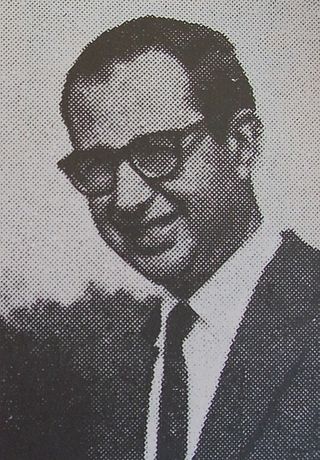
Noé Jitrik was an Argentine literary critic.
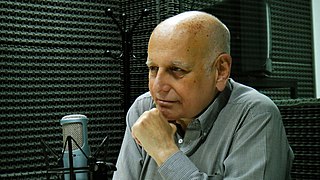
Edgardo Cozarinsky was an Argentine writer and filmmaker. He was best known for his Spanish-language novel Vudú urbano.

Beatriz Sarlo is an Argentine literary and cultural critic. She was also founding editor of the cultural journal Punto de Vista. She became an Order of Cultural Merit laureate in 2009.

Susana Calandrelli was an Argentine writer and teacher.
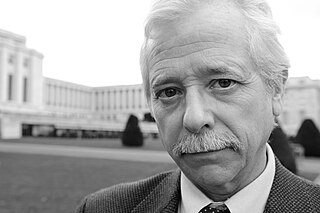
Juan Gasparini is an Argentinian investigative journalist and author.

Sergio Olguín is an Argentine author, journalist and literary critic born on 29 January 1967 in Buenos Aires. Whereas most of the novels that he has published to date can be categorised as youth literature, he has also published stories and novels that do not fall in this category.
Jorge B. Rivera (1935–2004) was an Argentine poet, essayist, critic, journalist and researcher on issues of history and popular culture. He was born in Buenos Aires in 1935 and died on August 27, 2004. He is considered a pioneer in research in mass communication in Argentina.
The Argentine Constitutional Reforms of 1949 were approved during Juan Domingo Perón's government. This new constitution was a major revision of the Constitution of Argentina. Its goal was to modernize and adapt the text to the twentieth century's concepts of democracy, with a bill of social rights, including better working conditions for the working class, right to education, etc. It also allowed for the indefinite reelection of the president.
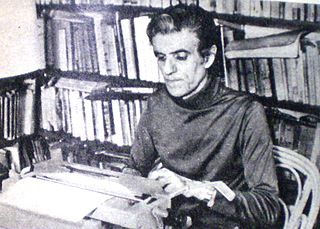
Juan José Pérez Sebreli is an Argentine sociologist, essayist and philosopher. Throughout his intellectual work, he concentrated on the notions of reason, city and everyday life.
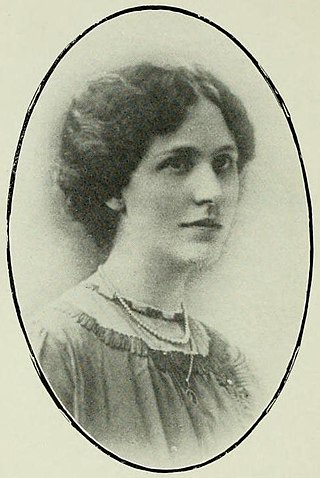
Delfina Bunge de Gálvez was an Argentine writer, poet, essayist and philanthropist.
The history of lesbian, gay, bisexual and transgender people (LGBT) in Argentina is shaped by the historic characterisation of non-heterosexuality as a public enemy: when power was exercised by the Catholic Church, it was regarded as a sin; during the late 19th and early 20th centuries, when it was in the hands of positivist thought, it was viewed as a disease; and later, with the advent of civil society, it became a crime.

Contrakultura Films was an imprint of Iruña Films, SA a Buenos Aires film production effort dedicated to producing biographical documentaries on Latin American writers. Production offices were located in San Telmo. Soledad Liendo, Leonardo Hussen and Rodolfo Durán were among the producers. The initiative later expanded to include visual artists such as Andrés Waissman and Humberto Calzada, and [social scientists] such as León Rozitchner, Ismael Viñas, Juan Jose Sebreli and Jorge Lovisolo. Contrakultura existed as such between 2002 and 2006 producing approximately twenty-five documentaries with the support of INCAA, Fondo Nacional de las Artes, and the Ministerio de Cultura de la Nación. These films are presently owned by [Heritage Film Project], and currently being distributed by Alexander Street Press.

LGBT in Argentina refers to the diversity of practices, militancies and cultural assessments on sexual diversity that were historically deployed in the territory that is currently the Argentine Republic. It is particularly difficult to find information on the incidence of homosexuality in societies from Hispanic America as a result of the anti-homosexual taboo derived from Christian morality, so most of the historical sources of its existence are found in acts of repression and punishment. One of the main conflicts encountered by LGBT history researchers is the use of modern concepts that were non-existent to people from the past, such as "homosexual", "transgender" and "travesti", falling into an anachronism. Non-heterosexuality was historically characterized as a public enemy: when power was exercised by the Catholic Church, it was regarded as a sin; during the late 19th and early 20th centuries, when it was in the hands of positivist thought, it was viewed as a disease; and later, with the advent of civil society, it became a crime.

Lily Sosa de Newton was an Argentine historian, biographer and essayist. She was a pioneer in historical research on Argentine women in different fields. She also wrote numerous biographies of historical figures.
Mario David was an Argentine film director and screenwriter. He directed and wrote 12 films between 1971 and 1996.

Editorial Haynes was an Argentine publishing company founded by Alberto M. Haynes in 1904. The publisher released several magazines such as El Hogar, Mundo Deportivo, Mundo Argentino, Mundo Agrario, Mundo Infantil, and newspaper El Mundo, among other imprints.
References
- ↑ Scotti, María Angélica. Historias del peronismo. Ediciones Corregidor, Buenos Aires: March, 1973, p. 34.
- 1 2 3 Garzón, Raquel (15 November 2021). "Blas Matamoro, el francotirador que jamás se sintió un escritor maldito". El País (in Spanish). Retrieved 4 July 2022.
- ↑ Sebreli, Juan José. "Blas Matamoro", Ómnibus13 (III), February, 2007.
- ↑ Matamoro, Blas (June 30, 1976). Olimpo (First ed.). Buenos Aires: Ediciones Corregidores.
- ↑ Matamoro, Blas (June 30, 1976). Olimpo (First ed.). Buenos Aires: Ediciones Corregidores.
- ↑ Matamoro, Blas (June 30, 1976). Olimpo (First ed.). Buenos Aires: Ediciones Corregidores.
- ↑ Matamoro, Blas (June 30, 1976). Olimpo (First ed.). Buenos Aires: Ediciones Corregidores.
- ↑ Matamoro, Blas (June 30, 1976). Olimpo (First ed.). Buenos Aires: Ediciones Corregidores.
- ↑ Óscar Esquivias: «Los bigotes de la Gioconda, Blas Matamoro», La tormenta en un vaso, April, 2013.